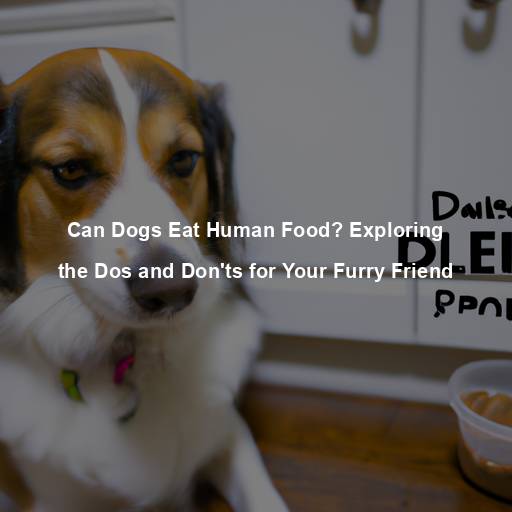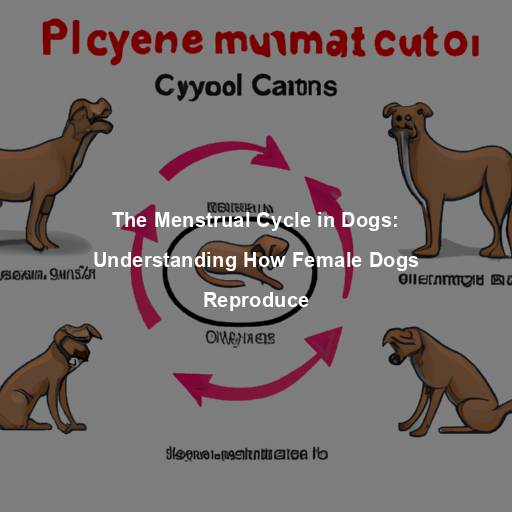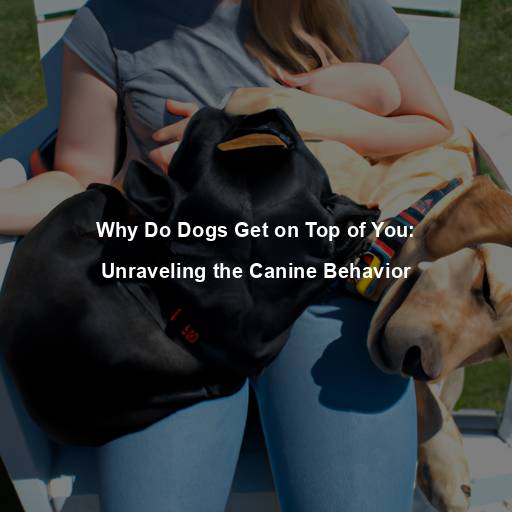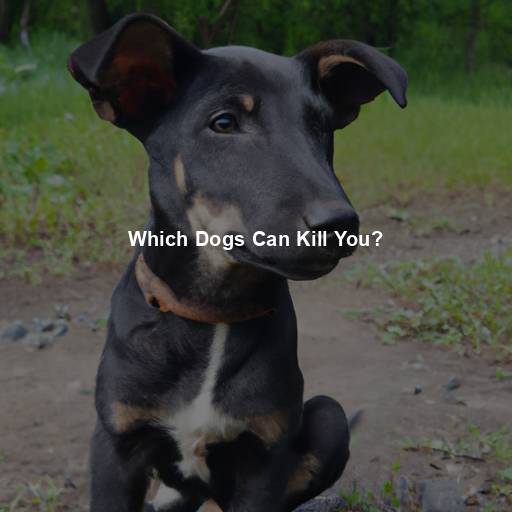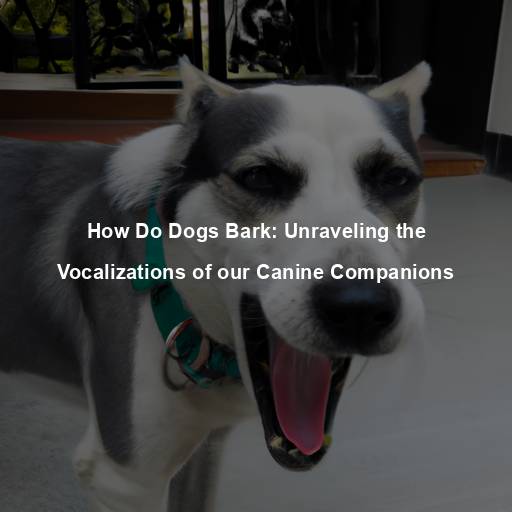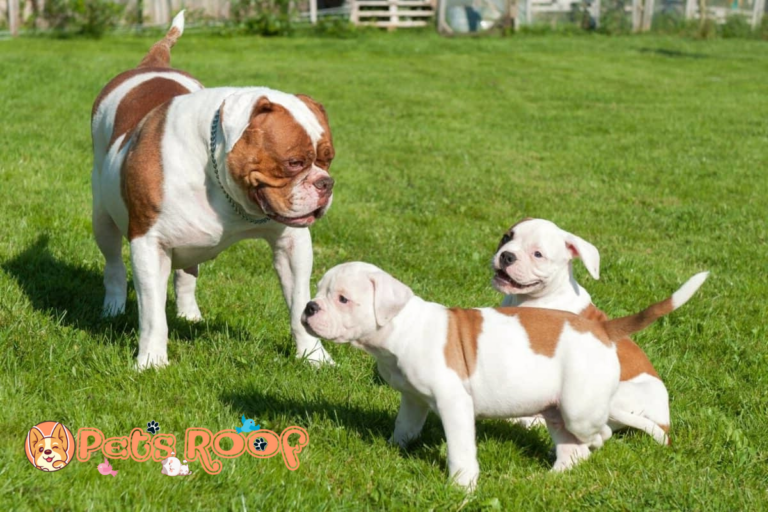Can Dogs Eat Human Food? Exploring the Dos and Don’ts for Your Furry Friend
Last Updated on August 3, 2023 by Evan
Contents
- 1 Understanding the Nutritional Needs of Dogs
- 2 The Perils of Sharing Human Food with Dogs
- 3 Foods Safe for Dogs in Moderation
- 4 The Importance of Portion Control
- 5 Homemade Dog Food: Pros and Cons
- 6 Commercial Dog Food: Making an Informed Choice
- 7 FAQs about when dogs can eat human food:
- 7.1 Can dogs eat human food?
- 7.2 What types of human food can dogs eat?
- 7.3 Are there any human foods that dogs should never eat?
- 7.4 Can dogs eat table scraps?
- 7.5 Should I give my dog human food as a regular part of their diet?
- 7.6 How can I introduce human food to my dog’s diet?
- 7.7 What should I do if my dog accidentally ingests harmful human food?
Understanding the Nutritional Needs of Dogs
As devoted guardians of our lovable four-legged companions, we’re constantly grappling with the enigma of what nourishment is safe and suitable for them. Among the numerous inquiries that arise, the perplexing quandary of whether or not dogs can partake in our gastronomical pleasures takes center stage. Despite the temptation to share our savory repasts with our furry pals, it is vital to unravel the intricacies of their distinct dietary requirements before lavishing them with our culinary creations.
A Species-Specific Diet
When it comes to the culinary preferences of our canine companions, it’s a tale of versatility and adaptation. While dogs may have carnivorous roots, they have embraced a more opportunistic approach to their diet. Their digestive prowess is finely tuned to handle a wide array of sustenance, with an emphasis on animal-based fare. While they can make do with bits of green goodness, it’s their primal need for protein-rich meals that truly nourishes their inner beast.
The Perils of Sharing Human Food with Dogs
We all love spoiling our beloved furry companions with some extra treats, especially from our own plates. However, it’s important to remember that not all human foods are safe for our dogs. In fact, some foods can pose serious threats and even be toxins to our four-legged friends. It’s vital to familiarize ourselves with the potential dangers lurking in certain types of human food to keep our pups happy and healthy.
Toxic Foods for Dogs
- Chocolate: Chocolate contains theobromine, a compound that is toxic to dogs. Even small amounts of chocolate can cause symptoms such as vomiting, diarrhea, increased heart rate, and, in severe cases, seizures and even death.
Did you know that grapes and raisins have the potential to be extremely harmful to our canine companions? These innocent-looking fruits can actually lead to kidney failure in dogs. To ensure the well-being of your furry friend, it’s best to steer clear of feeding them grapes and raisins altogether. Stay safe and keep your pup away from these seemingly innocuous treats.
-
Onions and Garlic: Onions and garlic, whether raw, cooked, or in powdered form, contain compounds that can damage a dog’s red blood cells, leading to anemia. It is advisable to keep these ingredients away from your dog’s reach.
-
Avocado: Avocados contain a substance called persin, which can be toxic to dogs in large quantities. Additionally, the pits pose a choking hazard, and the high-fat content may lead to pancreatitis.
-
Xylitol: Xylitol is an artificial sweetener found in many sugar-free products, such as chewing gum, candies, and baked goods. It can cause a sudden release of insulin in dogs, leading to a dangerous drop in blood sugar levels.
Hazards of Table Scraps
When it comes to sharing our meals with our beloved canine companions, a word of caution and a sprinkle of prudence might be in order. While the act of feeding dogs from the table can seem innocent and endearing, it often comes with a side serving of unintended consequences. From fostering relentless begging behavior to fueling unwanted weight gain or even plunging our furry friends into the perilous realm of obesity, our kind intentions can sometimes backfire. Moreover, the seemingly harmless seasonings and flavors that titillate our taste buds can wreak havoc on a dog’s delicate digestive system, with salt, spices, and excessive fats posing a particular risk by potentially unsettling their stomach and even inducing pancreatitis.
Foods Safe for Dogs in Moderation
When it comes to our furry companions, it’s crucial to be mindful of the food they consume. While certain human foods can be shared with caution, it’s vital to remember that moderation is key. These treats can be a delightful addition to their diet, but overindulgence can lead to stomach troubles.
Dog-Friendly Fruits and Vegetables
Discover the Power of Apples: Packed with essential vitamins A and C, along with a healthy dose of fiber, these tantalizing fruits are a must-have for your furry companion. But remember, for a delightful and safe treat, always kindly remove the seeds and core before indulging their taste buds. Embrace the goodness of apples and relish in their burst of nutrients!
-
Carrots: Carrots are low in calories and high in fiber and vitamins. They make a crunchy and nutritious snack for dogs.
-
Blueberries: Blueberries are packed with antioxidants and can be a healthy treat for your furry friend. They can be given fresh or frozen.
Lean Proteins
Discover the secret to tantalizing your canine companion’s taste buds with delectable, boneless morsels of succulent chicken. This protein-packed delicacy will leave your furry friend begging for more, all while maintaining a monotone and unadorned essence. Feast in wonder at the perplexities of this poultry delight as you savor the burst of flavor it brings to your beloved pet’s palate.
- Salmon: Cooked salmon is an excellent source of omega-3 fatty acids, which can promote a healthy coat and skin for your furry friend.
The Importance of Portion Control
When feeding your dog human food, portion control is crucial. Treats should never exceed 10% of your dog’s daily caloric intake. It is essential to consider the size, age, and activity level of your dog when determining appropriate portion sizes.
Consult with Your Veterinarian
When it comes to feeding your furry friend, it’s essential to approach with caution. Seeking guidance from a trusted veterinarian is your best bet to navigate the bewildering world of doggy cuisine. By understanding your dog’s unique requirements, including any medical concerns or dietary limitations, your vet can offer tailor-made recommendations that will keep your pup healthy and happy. So, before you dive into the sea of culinary options for your beloved canine, let your vet steer you in the right direction and unleash a burst of nutritious choices.
Optimal Growth and Development
A balanced diet plays a crucial role in the growth and development of puppies. It provides them with the necessary nutrients to support healthy bone formation, muscle development, and overall growth. Puppies require a higher intake of calories, protein, and essential fatty acids to support their rapid growth.
Weight Management
Maintaining a healthy weight is important for dogs of all ages. Obesity can lead to various health issues, such as joint problems, heart disease, and diabetes. A balanced diet ensures that your dog receives the appropriate amount of calories and nutrients to maintain a healthy weight. It is important to consult with your veterinarian to determine the ideal weight for your dog and adjust their diet accordingly.
Improved Digestive Health
When it comes to our furry friends, ensuring their well-being starts from within. A thoughtfully crafted diet, tailored to the unique needs of our canine companions, paves the way for a healthy digestive journey. Embracing a delicate medley of carefully selected proteins, carbohydrates, and fibers, this dietary marvel is a key player in promoting optimal digestion. As our furry friends indulge in this gastronomic delight, they not only savor their meals but also safeguard themselves against unwelcome digestive dilemmas like tummy troubles and bloating.
Healthy Skin and Coat
When it comes to your furry companion, a balanced diet can work wonders for their skin’s health and coat’s radiance. Incorporating essential fatty acids like omega-3 and omega-6 into their meals is key to nourishing their skin cells and enhancing the luster of their fur. By providing these vital nutrients, you’ll help combat dryness, itching, and flaking, ensuring that your dog’s skin stays hydrated and their coat maintains a dazzling sheen.
Strong Immune System
Proper nutrition is crucial for maintaining a strong immune system in dogs. A balanced diet provides the necessary vitamins, minerals, and antioxidants that support immune function. A robust immune system helps protect your dog from infections, diseases, and other health issues. It is important to choose a diet that includes high-quality ingredients to ensure optimal immune health for your furry friend.
Homemade Dog Food: Pros and Cons
In the never-ending saga of choosing the perfect nourishment for our beloved canine companions, the ongoing dispute between commercially manufactured dog food and homemade alternatives has left pet owners feeling bewildered and torn. Deciphering the intricacies of this perplexing predicament requires a careful examination of the pros and cons associated with the noble pursuit of whipping up homemade doggie delights. So, without further ado, let us embark on a culinary adventure that will unravel the enigmatic allure of homemade dog food.
Pros of Homemade Dog Food
- Control over Ingredients: One of the significant advantages of homemade dog food is that you have complete control over the ingredients. You can choose high-quality meats, vegetables, and grains to create a personalized diet for your furry friend.
When it comes to giving your furry friend the best nutrition possible, homemade dog food offers a unique advantage – the ability to tailor it to their specific needs. If your dog has allergies or sensitivities, you can eliminate any problematic ingredients and create a specialized diet that suits their individual requirements. This level of customization ensures that your beloved companion receives the nourishment they need, making their meals as unique as they are.
- Fresh and Natural: Homemade dog food is often made with fresh ingredients, minimizing the use of preservatives and artificial additives. This can be especially beneficial for dogs with sensitive stomachs or those prone to food allergies.
Cons of Homemade Dog Food
- Nutritional Imbalance: Creating a nutritionally balanced homemade diet for dogs can be challenging. Dogs require specific ratios of proteins, fats, carbohydrates, vitamins, and minerals to meet their dietary needs. Without proper knowledge and guidance, it can be easy to create an unbalanced diet that lacks essential nutrients.
Creating nutritious, homemade meals for your furry friend can be quite a labor-intensive endeavor. From meticulously selecting top-notch ingredients to meticulously preparing the meals, it demands both time and effort. For those juggling hectic schedules or lacking culinary finesse, diving into the world of homemade dog food can be a perplexing task, leaving you wondering if it’s the right choice for you and your pup.
Did you know that there’s something worrisome lurking in your kitchen? Turns out, homemade dog food might not be as innocent as we thought. Recent studies suggest that it could have a higher chance of harboring harmful bacteria, putting our beloved pets at risk. But fear not!
Commercial Dog Food: Making an Informed Choice
Finding the perfect nourishment for your beloved canine companion can often feel like navigating a labyrinth of options. The sheer abundance of commercial dog food brands and formulas can leave any pet owner perplexed and bewildered. However, by approaching this decision with a well-informed mindset, you can ensure that your furry friend receives the optimal nutrition they deserve.
Understanding Dog Food Labels
Evaluating the myriad choices of commercial dog food can leave you feeling like a squirrel lost in a maze of acorns. But fret not, for there is a method to deciphering the enigmatic codes of those dog food labels. From understanding mysterious ingredients to decoding puzzling nutritional claims, we are here to shed light on this bewildering labyrinth and guide you towards making an informed choice for your furry companion.
- Ingredients: Look for high-quality protein sources, such as real meat, as the first ingredient. Avoid dog foods that list vague or low-quality ingredients, such as “meat by-products” or “animal digest”.
When it comes to choosing the right food for your furry friend, ensuring their nutritional needs are met is of utmost importance. Look for dog food that proudly carries the label “complete and balanced,” indicating that it meets the rigorous standards set by the Association of American Feed Control Officials (AAFCO). By doing so, you can have peace of mind knowing that the food you choose provides the essential nutrients that your beloved pup needs to thrive.
When it comes to choosing the right dog food, it’s essential to steer clear of options that are chock-full of fillers like corn, wheat, and soy. While these ingredients might serve as a source of carbs, they don’t bring much to the nutritional table for our furry friends. Your pup deserves a diet that’s packed with quality ingredients to keep them feeling their best!
Choosing the Right Type of Commercial Dog Food
Commercial dog food comes in various forms, including dry kibble, wet canned food, and semi-moist options. Each type has its own advantages and considerations.
- Dry Kibble: Dry kibble is a popular choice for its convenience, affordability, and dental benefits. It helps promote dental health by reducing plaque and tartar buildup. However, it may be less palatable for some dogs and may require additional moisture to prevent dehydration.
When it comes to nourishing our beloved canine companions, wet canned food has become quite the talk of the town. Its irresistibly palatable nature and added moisture make it a top choice for those dogs who may find it challenging to stay properly hydrated. However, it’s worth noting that this premium option can dig a little deeper into our pockets and must be consumed quickly once opened, making us question whether the wet life is truly the way to go.
Looking for a culinary compromise that tantalizes your pet’s taste buds without all the mess? Enter semi-moist food, the perfect middle ground between dry kibble and wet canned food. Prepare for an appetizing experience that requires less moisture supplementation while still satisfying your furry friend’s discerning palate. Keep in mind, though, that this delectable option might come with higher levels of preservatives and artificial additives, adding an extra layer of perplexity to your decision-making process.
Transitioning Between Diets
When it comes to altering your furry friend’s meal plan, a cautious approach is key. Abruptly switching between homemade and commercial diets can send their digestive system into a frenzy, resulting in unwelcome stomach troubles like vomiting and diarrhea. To navigate this transition smoothly, introduce the new food gradually over a span of seven to ten days, incrementally upping the proportion of the new grub while gradually decreasing the old chow.
FAQs about when dogs can eat human food:
Can dogs eat human food?
Dogs can eat certain types of human food as long as it is safe and suitable for their digestive system. While dogs are primarily carnivores, they have adapted to a more omnivorous diet over time. However, it’s important to ensure that the human food provided to dogs is free from harmful ingredients and is given in moderation.
What types of human food can dogs eat?
When it comes to sharing our meals with our furry friends, there are some human foods that can actually be enjoyed by dogs without causing any harm. Lean meats like chicken or turkey, cooked eggs, and plain yogurt are just a few examples of safe and tasty options for our four-legged pals. Likewise, fruits such as apples and blueberries, as well as veggies like carrots and green beans, can be a healthy addition to their diet. However, it’s crucial to keep in mind that moderation is key and that seasonings or added spices should be avoided at all costs, as they can pose a potential threat to our beloved pets.
Are there any human foods that dogs should never eat?
Yes, there are several human foods that are toxic to dogs. These include chocolate, caffeine, grapes and raisins, onions, garlic, avocado, and certain types of nuts such as macadamia nuts. It’s vital to keep these foods away from dogs to prevent potential poisoning or adverse health effects.
Can dogs eat table scraps?
When it comes to sharing food with our furry pals, caution should always be the main ingredient. While a few table scraps may pass the doggie taste test, it’s wise to veer away from any haphazard feast straight from our human plates. Why, you wonder? Well, these leftovers often harbor a cocktail of fats, spices, and sneaky additives that could leave our pooches feeling worse than perplexed, wreaking havoc on their delicate tummies and potentially sparking long-term health concerns. So, if you must treat your four-legged friend to a nibble of your sustenance, make sure it’s a bare-bones, unseasoned morsel served with a side of moderation.
Should I give my dog human food as a regular part of their diet?
When it comes to nourishing our furry companions, finding the perfect balance can leave us scratching our heads in bewilderment. Dog food, carefully formulated to meet their nutritional needs, should make up the bulk of their diet. While we might be tempted to share a bite from our own plates, it’s important to tread cautiously as human food may not be a reliable substitute for their specialized sustenance. Nevertheless, judiciously incorporating small portions of safe and appropriate human food as occasional indulgences or to diversify their meals can add a dash of excitement to their taste buds.
How can I introduce human food to my dog’s diet?
When introducing human food to your dog, it’s essential to start with small portions and observe their reaction. Some dogs may have sensitivities or allergies to certain foods, so it’s important to be cautious. Introduce one type of human food at a time and monitor your dog for any signs of gastrointestinal upset, allergies, or other adverse reactions. If any issues arise, discontinue that particular food.
What should I do if my dog accidentally ingests harmful human food?
When your precious pooch devours something that could be potentially harmful, it’s absolutely paramount to reach out for expert veterinary help ASAP. Whether you get in touch with your trusty vet or a nearby round-the-clock pet clinic, seek their wise counsel. Don’t forget to gather all the gritty details like the specific food substance, the amount gobbled up, and any pesky symptoms that your furry friend may be exhibiting. Prompt and decisive action can truly be a lifesaver, warding off any gnarly issues that could arise from these toxic culinary indulgences.
When it comes to your furry companion’s nutrition, tread cautiously on the path of decision-making. It is imperative to seek wisdom from your trusted veterinarian before embarking on any culinary adventures for your four-legged friend. Their expertise will guide you through the labyrinth of dietary perplexity and help safeguard your dog’s overall health and happiness, averting any potential troubles that may lurk amidst the world of enticing human food.

